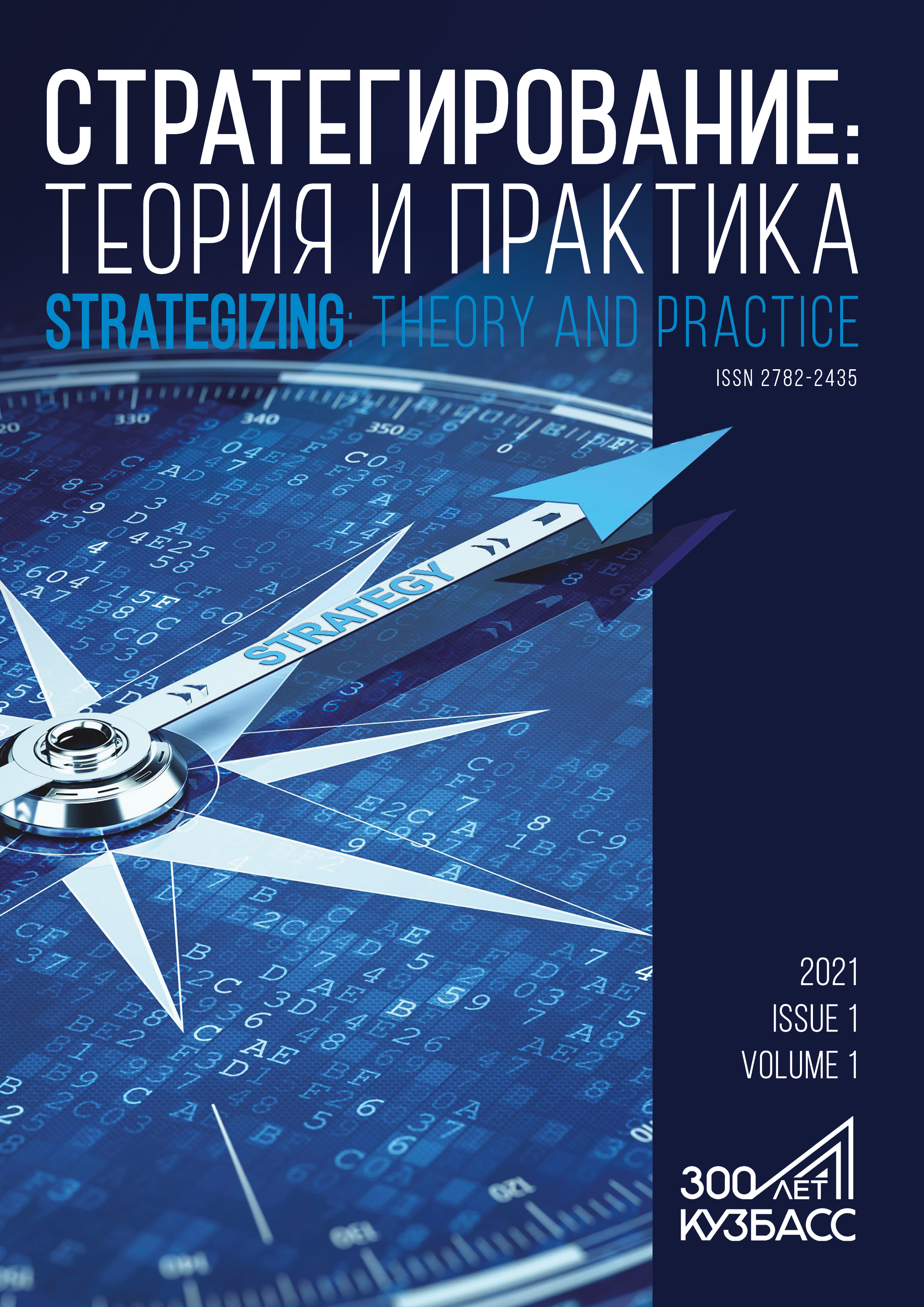Moscow, Russian Federation
Regional employment depends on the level of education in that particular region. An effective education system makes it possible to achieve the Sustainable Development Goals set by the United Nations. Access to quality education boosts economic growth, increases employment prospects, and reduces gender and income inequality. This research featured the strategy of employment development in the Amur Region. The author believes it should be based on the global, national, and regional trends, one of which is public access to quality education. The methodology relied on the theory of strategy and strategizing developed by Professor V.L. Kvint. According to this approach, the high quality of human life is the ultimate goal of any strategy. The analysis revealed Russia’s place in the global education ranking, as well as the national objectives, their indicators, and directions of regional projects as part of the National Education Project in the Amur Region. The strategizing made it possible to define the areas of employment development which are affected by the quality education trend. By implementing the quality education trend, the Amur authorities will be able to identify the opportunities, threats, strengths, and weaknesses to define the strategic priorities in the employment strategy, which will eventually improve the quality of life in the regi on.
strategizing, education, global trends, employment, region
1. Aganbegyan AG. O prioritetakh sotsialʹnoy politiki [Social policy priorities]. Moscow: Delo; 2018. 512 p. (In Russ.)
2. Aganbegyan AG. Social and economic development of Russian regions under new sanctions. Ehkonomika Severo-Zapada: problemy i perspektivy razvitiya [Economy of the North-West: Problems and Development Prospects]. 2022;69(2):10-22. (In Russ.) https://doi.org/10.52897/2411-4588-2022-2-10-22
3. Bodrunov SD. New industrial future for the global world. Economic Revival of Russia. 2022;72(2):5-23. (In Russ.) https://doi.org/10.37930/1990-9780-2022-2-72-5-23
4. Kvint VL. The concept of strategizing. Kemerovo: Kemerovo State University; 2020. 170 p. (In Russ.) https://doi.org/10.21603/978-5-8353-2562-7
5. Kvint VL, Novikova IV, Alimuradov MK. Alignment of global and national interest with regional strategic priorities. Economics and Management. 2021;27(11):900-909. (In Russ.) https://doi.org/10.35854/1998-1627-2021-11-900-909
6. Kvint VL, Alimuradov MK, Zadorozhnaya GV, Astapov KL, Alabina TA, Bakhtizin AR, et al. A conceptual future for the Kuzbass Region: strategic outlines of developmental priorities through 2071, a 50-year perspective. Kemerovo: Kemerovo State University; 2022. 283 p. (In Russ.) https://doi.org/10.21603/978-5-8353-2812-3
7. Novikova IV. The concept of employment strategy for the digital economy. Kemerovo: Kemerovo State University; 2020. 254 p. (In Russ.) https://doi.org/10.21603/978-5-8353-2609-9
8. Novikova IV. Strategic development of labor resources in the Russian Far East. Moscow: Creative Economy; 2019. 158 p. (In Russ.) https://doi.org/10.18334/9785912922756
9. Okrepilov VV, Gagulina NL. The analysis and modeling of quality of life assessment of the region’s economy on the conceptual basis of economics of quality. Ehkonomika Severo-Zapada: problemy i perspektivy razvitiya [Economy of the North-West: Problems and Development Prospects]. 2022;69(2):100-105. (In Russ.) https://doi.org/10.52897/2411-4588-2022-2-100-105
10. Novikova IV, Abrosova OE, Boyko KV, Boksgorn AA, Bochantsev AS, Busygin SYu, et al. Strategizing of Kuzbass human capacity. Kemerovo: Kemerovo State University; 2020. 453 p. (In Russ.) https://doi.org/10.21603/978-5-8353-2642-6
11. Novikova IV, Boiko KV, Dudovtseva YuV, Ovchinnikov VA. Strategic priorities of maintaining decent life in Kuzbass. Russian Journal of Industrial Economics. 2020;13(3):308-317. (In Russ.) https://doi.org/10.17073/2072-1633-2020-3-308-317
12. Oganesyan TK, Styrin EM, Abdrakhmanova GI, Rozmirovich SD, Merkulova DYu, Bikbulatova YuS. Tsifrovaya ehkonomika: globalʹnye trendy i praktika rossiyskogo biznesa [Digital Economy: Global Trends and Russian Business Practice]. Moscow: National Research University Higher School of Economics; 2017. 121 p. (In Russ.)
13. Shatskaya IV. Global trends in improving the system of personnel support for innovative development. Strategizing: Theory and Practice. 2022;2(2):241-256. (In Russ.) https://doi.org/10.21603/2782-2435-2022-2-2-241-256
14. Shatskaya IV. Strategizing and lifelong education development. Strategizing: Theory and Practice. 2022;2(1):1-11. (In Russ.) https://doi.org/10.21603/2782-2435-2022-2-1-1-11
15. Shevchenko KV. Analysis of the human development index when strategizing employment in the amur region. Novaya ehkonomika, biznes i obshchestvo: sbornik materialov Aprelʹskoy nauchno-prakticheskoy konferentsii molodykh uchenykh [New economy, business, and society: Proceedings of the April scientific and practical conference of young scientists]; 2022; Vladivostok. Vladivostok: Far Eastern Federal University; 2022. p. 326-330. (In Russ.) https://doi.org/10.24866/7444-5339-8
16. Shevchenko KV. Alignment of strategic interests in the development of employment in the Amur region. Administrative Consulting. 2022;164(8):149-160. (In Russ.) https://doi.org/10.22394/1726-1139-2022-8-149-160
17. Shevchenko KV. Strategic analysis of labour market of the Amur region (data taken form HeadHunter and SuperJob web-platforms). Russian Journal of Industrial Economics. 2022;15(2):234-242. (In Russ.) https://doi.org/10.17073/2072-1633-2022-2-234-242
18. Berger T, Frey C. Structural Transformation in the OECD: Digitalisation, deindustrialisation and the future of work. OECD Social, Employment and Migration Working Papers. 2016;193. https://doi.org/10.1787/5jlr068802f7-en
19. Greene L, Mamic I. The future of work: increasing reach through mobile technology. Bangkok: International Labour Organization; 2015. 47 p.
20. Kvint VL. Strategy for the global market: Theory and practical applications. New York: Routledge; 2015. 548 p. https://doi.org/10.4324/9781315709314
21. Mello Silva MF, Vargas ER. Quality assurance systems: Enemies or allies of innovation in higher education institutions? Quality Assurance in Education. 2022;30(1). https://doi.org/10.1108/QAE-09-2020-0116
22. Stephens S. Recognition of prior learning: Implications for quality assurance in higher education. Quality Assurance in Education. 2022;30(4):495-506. https://doi.org/10.1108/QAE-03-2022-0054
23. Zhuravlev DM, Glukhov VV. Strategizing of economic systems digital transformation: a driver on innovative development. St. Petersburg State Polytechnical University Journal. Economics. 2021;14(2):7-21. https://doi.org/10.18721/JE.14201






